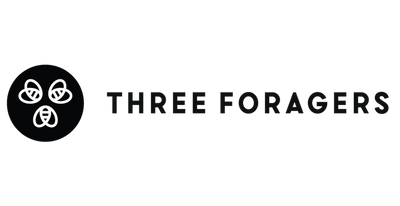Honey

Photo by Allison Seto
A Gift from Nature
Like a finely crafted wine, honey has "terroir", meaning, its flavour and texture are influenced by the climate and natural environment where it is produced. This terroir is often lost in mass-produced honey, which is made by blending and heating honey from many regions to achieve uniformity.
Our bees forage on alfalfa, sweet clover, and wildflowers in the Canadian prairies. We strive to respect the uniqueness of our terroir and the effort that our bees have given by preserving their honey in its most natural, raw form.
A SUSTAINABLE SWEETENER
Did you know that local honey is the most environmentally-friendly sweetener in the world? Compared to any other sweetener, including table sugar and corn syrup, honey uses a fraction of the energy costs associated with the production, refining, and transportation of other sweeteners.
-
Honey is a byproduct of crops or wildflowers so it requires no fertilizer, pesticides, or irrigation, and leaves almost no impact on the land.
-
Raw honey has virtually no refining step - it is taken right out of the comb, minimally filtered, and then packaged for you all to enjoy.
-
Finally, purchasing local honey means that transportation costs are very low. In Canada, 90% of sugar consumed is imported as raw cane sugar from countries in South and Central America [1]. The further that food travels to get to the table, the more planes, ships, trucks, and trains are required to get it there, which increases pollution and the environmental impact of the product.
HOW IS OUR HONEY DIFFERENT FROM OTHERS?
When you purchase a jar of Three Foragers, you’re not just getting honey that tastes amazing, but you’re also supporting a system that emphasizes the quality of our environment, the quality of honeybee health, and the quality of what you take home to feed to your family.
Most larger packers will source honey from all over Canada and beyond and blend the honey to sell to the consumer cheaply. They can also employ processing techniques that strip the honey of its nutritional value.
We produce all of our own honey at our family farm in Saskatoon, Saskatchewan. As beekeepers as well as processors, we have full control over the entire production cycle of every teaspoon of honey. This is where we can make a difference.
WHAT DOES THIS MEAN?
Sustainable beekeeping - We manage our hives for their health and survival, not for the greatest honey yield or gentleness. We want our bees to THRIVE because exceptional honey begins with exceptional bees. We only take the honey that our bees won’t need to consume themselves.
Rich food sources - Canada is an agriculture-rich region with an endless variety of flowers. This feature, along with our intense climate, makes Canadian honey the best in the world.
Strict harvesting standards - Sometimes producers will harvest the honey too early, which can lead to a poorer product, or fermentation of the honey over time. We only take the honey when it’s ready to be harvested.
Minimal processing - Honey comes out of the hive perfectly made by bees, so our job is to keep this perfection in the jar you take home. That means minimal straining, no blending, no pasteurizing, no shortcuts!
Earth-friendly packaging - We are committed to packaging materials that are 100% recyclable. We use compostable films, glass jars, metal lids, and paper labels made from recycled content. Our honey caramels bags and wrappers are also completely compostable!
___
[1] Canadian Sugar Industry Statistics.
